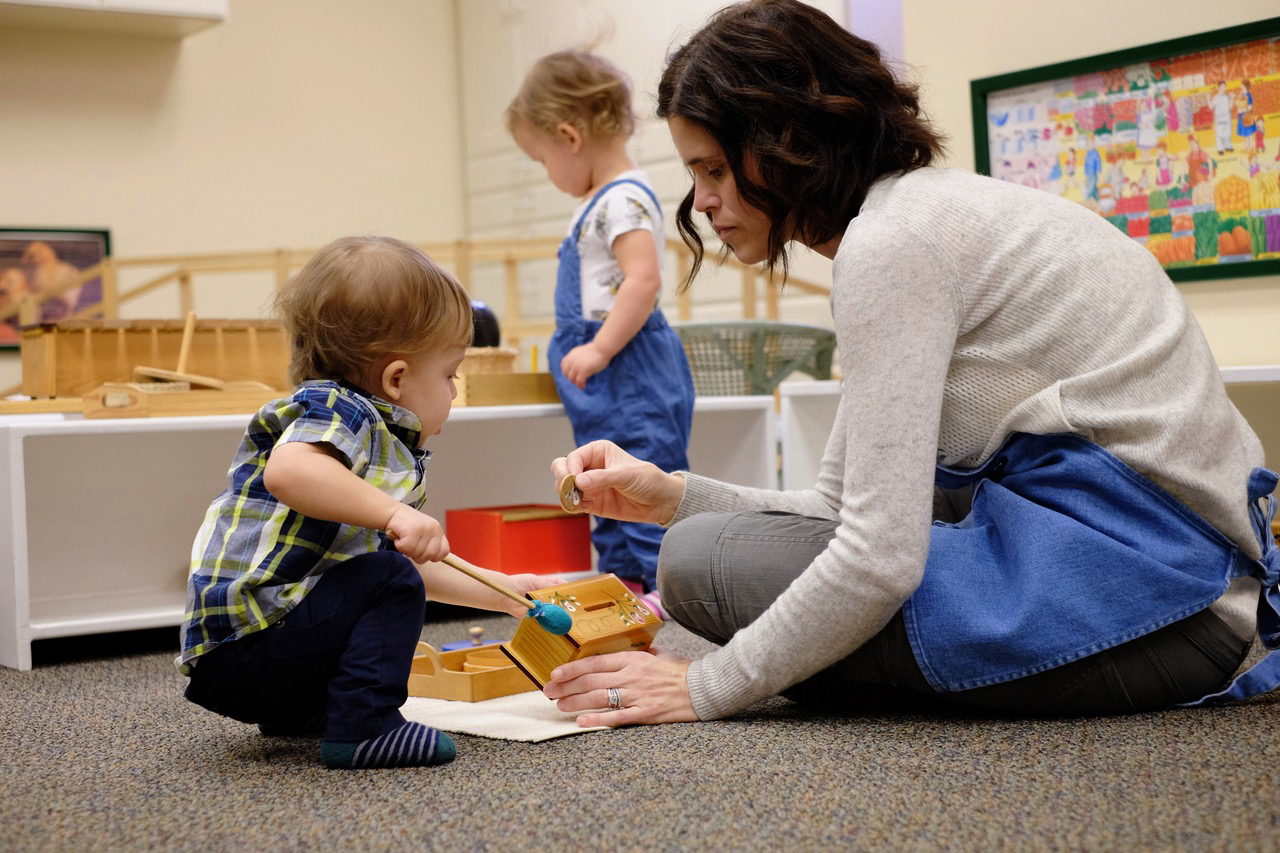The Montessori Institute
The Montessori Institute Denver recently celebrated its 25th anniversary offering AMI-recognized programs.
Currently, TMI offers the Assistants to Infancy, or A to I training. This course is the foundation of the Montessori curriculum, as it encompasses child development at the beginning of life from birth to three years. This course is offered over two summers. Our graduates extend around the world, working with children and in the communities in which they live.
History of Montessori
Working in a Montessori environment is unlike traditional teaching. The Association Montessori Internationale (AMI) training courses prepare adults to help children by following their natural rhythms, interests, and developmental needs. The preparation is rich, complex, and interesting. The work is satisfying and joyful.
AMI was established in 1929 by Dr. Maria Montessori and is now directed by an international board supported by distinguished scholars and respected leaders worldwide. It is the founding Montessori agency that supports authentic theory and quality practice. AMI presently organizes studies in affiliated training institutions throughout the world.
The AMI Montessori diploma is awarded only by AMI-recognized training centers, which meet rigorous content standards and offer extensively trained and experienced staff. The Montessori Institute of Denver is proud to be an AMI-recognized training center.
TMI warmly welcomes students from around the world. With this in mind, simultaneous translation equipment is available for which a group of students provides a translator. Students working in translation at The Montessori Institute bring an element of diversity which enriches the community.
Become a Teacher. Support the Future.
Training
0-3 Teacher Training-Assistants to Infancy
The Montessori Assistants to Infancy Training began in 1947 in Rome, Italy. The training was based on many hours of scientific observation of infants and very young children. The course included components which continue to be supported by contemporary research, such as the use of self-hypnosis for childbirth, gentle birth practices, the awareness of infants, the importance of touch and communication, as well as the importance of language, music and joy in the environment. The training has always emphasized the importance of freedom in an environment prepared with interesting objects that encourage movement and exploration. Special clothing, furnishings and toys made with careful attention to detail are designed in response to the observed needs of the infant.
In 1980, Dr. Silvana Montanaro, offered the first Assistants to Infancy (A to I) Training accredited by AMI in Rome. In 1982, she brought this course to the United States.
A to I students are prepared to work with expecting parents, to assist with the infant at birth, to prepare beautiful and responsive environments, and to work as lead teachers in infant and toddler communities in schools, daycare settings and hospitals.
A to I courses are 14 months long with two summers sessions on site and assignments in the intervening academic year. During the summer sessions, students prepare their own reference manuals (albums) and timelines of child development. Some handmade materials are required (you may be surprised by your hidden abilities.) Progressive relaxation sessions are offered daily.
CURRENT COURSES
Each course is two summers.
A new course begins every year in June.
A new course begins every year in June.
2020/2021
Accepting applications for this course
First Summer 2020: June 3 – July 23
Second Summer 2021: June 7– August 6
Second Summer 2021: June 7– August 6
2021/2022
First Summer 2021: June 7 – July 30
Second Summer 2022: June 6 – August 5
Second Summer 2022: June 6 – August 5
Location
700 Knox Ct., Denver, CO 80204
First summer
The first summer’s work begins with an overview of Montessori theory and practice, following the child’s natural development and focusing on the period from conception to age three. Obstetrics, hygiene, and nutrition cover the anatomy and physiology of reproduction, fetal development, birth, health issues, and the puerperium (the first eight weeks after birth). We consider the preparation of supportive and beautiful environments and their adaptation to the child’s changing needs. Emphasis is on the home and family environment during this first summer of training, but is easily applied to group settings.
Between the two summers, students complete 250 hours of observation of children from birth to three at home and in group settings. Each student completes one week of student teaching with children in either a Nido or Infant Community. During that week, the student is visited for support and evaluation by a course staff member, either in Denver or at one’s own location. Travel and lodging expenses are the student’s responsibility.
The first summer ends with a practice written examination and a conference.
Second summer
The second summer adds a study of child neuropsychiatry and of environments for children in a Nido and an Infant Community (out-of-home settings), including appropriate materials and activities.
Comprehensive written and oral examinations are given at the end of the second summer, offering an opportunity to consolidate and share what was learned.
Trainers

Co-Director of Training for Assistants to Infancy,
holds AMI diplomas for the 0-3 and 3-6 levels. She has a Bachelor’s
degree in Advertising from The University of Georgia and a Masters in
Montessori Education from Loyola. She has worked in the National and
International Montessori community since 1998 conducting workshops,
trainings, consultations and conferences. Karey is an AMI examiner, AMI
consultant and an adjunct professor at Loyola University in Maryland.



